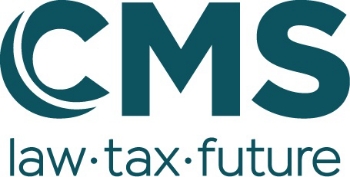Introduction
On November 11 2015 and December 1 2015(1) the Federal Cartel Office (FCO) closed its proceedings against car manufacturers Ford, Opel and PSA Peugeot Citroën after they committed to refrain from the contested behaviour. The proceedings concerned restrictions that the car manufacturers had imposed on their dealers regarding their ability to cooperate with internet intermediaries. The decision is once again proof of the FCO's scepticism when it comes to restrictions of internet distribution and therefore has significance beyond the sale of new cars.
Decision
In spring 2015 the FCO started an investigation against the car manufacturers after it read in the trade press that they had implemented internet standards in their dealer contracts. The internet standards contained provisions for the dealers' sales activities online, and adherence to some of the provisions was relevant to the bonus amounts that the dealers could achieve. None of the internet standards contained a clear-cut prohibition to cooperate with internet-based new car portals. However, the FCO found that they could be construed in such a way and in fact the majority of the dealers did so.
The internet-based new car portals (in Germany, mainly 'autohaus24.de' and 'meinauto.de') work according to the following principles:
- The end customer must configure his or her desired car on the online portal, indicating the brand and all necessary requirements.
- The online portal indicates a price range for the configured car, making use of its own market-price research and dealers' price indications.
- If the customer has agreed to intermediation for the sale and purchase of the car, the online portal looks for a dealer which offers the desired car at the desired price.
- The sale takes place between the dealer and the end customer only.
- The online portal receives its remuneration from the dealer with which the contract has been concluded and not from end customers.
According to the FCO, internet-based new car portals lead to a level of market transparency which consumers are unable to reach by their own means (or at least not with reasonable effort). This transparency stimulates not only inter-brand competition between the different car brands, but also intra-brand competition between dealers of the same brand. Internet-based new car portals are supposed to exert competitive pressure on the prices of stationary dealers.
The FCO, therefore, found that any restriction of the dealer's ability to cooperate with internet-based new car portals is likely to constitute anti-competitive conduct under Article 101 of the Treaty on the Functioning of the European Union (even though the FCO has made no final decision in this regard), which under a preliminary assessment could not benefit from the EU Vertical Block Exemption Regulation, as it constitutes a hardcore restriction within the meaning of Article 4(c) of the regulation. This provision declares that the block exemption does not apply to any restrictions of active or passive sales to end users by retailers of a selective distribution system. According to the European Commission's supplementary guidelines on vertical restraints in agreements for the sale and repair of motor vehicles, the term 'end user' also refers to consumers which purchase through an intermediary.(2) The FCO took the view that internet-based new car portals act as intermediaries for end customers. The FCO's concerns were eventually removed by the car manufacturers' clarification that internet standards should not apply to internet-based new car portals acting as intermediaries for end customers. A final decision on the issue was unnecessary.
Comment
It could be assumed that all car manufacturers have set up selective distribution systems in order to structure the distribution of their new cars in Europe. Integral to these selective distribution systems are qualitative criteria which the dealers must meet in order to be authorised. The qualitative criteria usually focus on how the dealers present the brand (and themselves) to customers – for example, by making specifications regarding sales and show rooms. It is also essential that dealers use their best efforts to sell cars and that they are not allowed to transfer their sales obligation to third parties.
According to the FCO's press release, car dealers seem to cooperate closely with internet-based new car portals and would even eventually pay commission if they could conclude a contract with an end customer. It therefore appears that internet-based new car portals are part of the car dealers' sales organisation. Such integration of third parties appears to conflict with the legitimate interests of car manufacturers, especially if it bypasses the qualitative criteria imposed on dealers. In its press release the FCO did not elaborate, but simply assumed that internet-based new car portals are intermediaries on the side of the end customers according to Article 4(c) of the Vertical Block Exemption Regulation. This is particularly surprising, since internet-based new car portals receive their remuneration from car dealers and not end customers.
The approach taken by the FCO once again illustrates that the authority is profoundly sceptical when it comes to restrictions of internet distribution. Such rationale could have influenced the FCO's interpretation that internet-based new car portals act as intermediaries on the side of the end customers (even though they are paid by car dealers). The manufacturers of branded goods are well advised to scrutinise whether their provisions regarding online sale are compliant with the FCO's approach about internet portals acting (allegedly or actually) as intermediaries for end customers.
For further information on this topic please contact Markus Schoner or Christoff Soltau at CMS Hasche Sigle by telephone (+49 40 37 63 00) or email ([email protected] or [email protected]). The CMS Hasche Sigle website can be accessed at www.cms-hs.com.
Endnotes
(1) B9-28/15.
(2) Supplementary guidelines on vertical restraints in agreements for the sale and repair of motor vehicles and the distribution of spare parts, 2010/C 138/05, paragraph 52.
This article was first published by the International Law Office, a premium online legal update service for major companies and law firms worldwide. Register for a free subscription.




